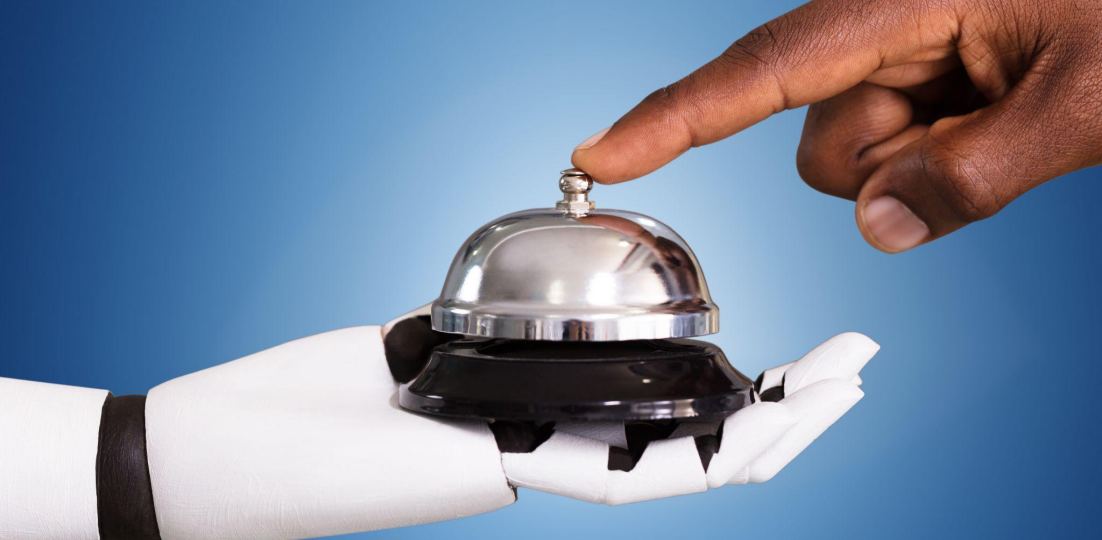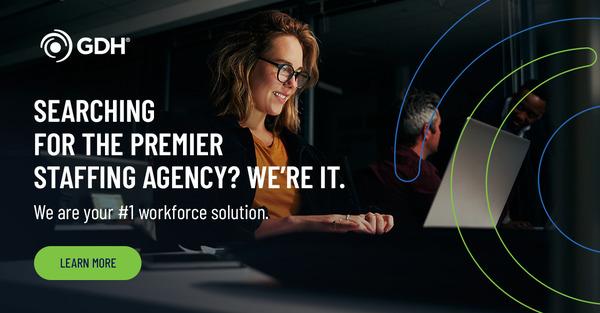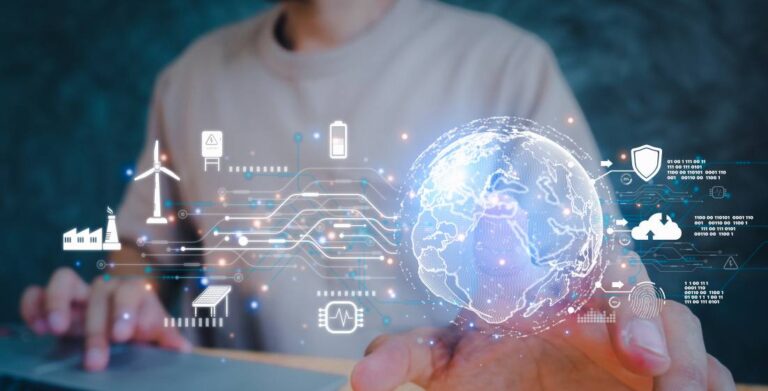AI in Hospitality IT: What It Means for Your Workforce Strategy
Key Takeaways
- AI is redefining IT operations across the hospitality industry.
- Smart staffing strategies help hotels implement and manage AI without compromising guest experience.
- GDH provides IT-focused staffing solutions tailored to hospitality transformation needs.
From AI-driven property management systems to automated guest service platforms, hospitality IT is undergoing a major shift. But no matter how advanced the technology, it takes the right people to make it work.
Hospitality leaders face a critical question: How do you evolve your IT workforce to support automation—without disrupting the guest experience?

How Is AI Being Used in the Hospitality Industry Today?
AI is already streamlining how hospitality IT departments operate—from back-end systems to guest-facing platforms.
Here are the key use cases:
- Smart check-in and room access. AI is powering mobile check-ins and facial recognition systems that integrate with property management software and access controls.
- Predictive maintenance and energy optimization. Machine learning models analyze sensor data to predict when systems like HVAC or lighting require attention, reducing downtime and costs.
- Personalized guest experience. AI-enabled CRMs and loyalty platforms deliver real-time personalization by processing data from past stays, preferences, and behavior patterns.
- IT operations automation. AI handles routine helpdesk tasks, automates network monitoring, and flags anomalies before they affect guests.
- Security and fraud detection. AI-enhanced surveillance systems and transaction monitoring tools improve cybersecurity and physical safety across hospitality environments.

Will AI Replace Hotel and Hospitality Jobs?
In short: AI will change IT roles, but not eliminate the need for skilled people. Here’s what’s happening:
- Some IT tasks will be automated. Routine helpdesk tickets, basic network monitoring, and report generation are increasingly AI-driven.
- Other roles are expanding. IT professionals now need to understand AI system integration, manage vendor platforms, and ensure ethical data use.
- New IT roles are emerging. The shift to AI is creating new functions that combine tech expertise with hospitality insight. Examples include:
- AI systems managers. Oversee the deployment and performance of AI tools across hotel properties.
- Data analysts. Translate system output into business insights that drive operations and guest satisfaction.
- Automation engineers. Build and manage workflows using AI for service delivery, facilities, and back-office functions.
Tech adoption specialists. Help hospitality teams embrace and maximize new AI-enabled systems.

What Are the Biggest Workforce Concerns About AI in Hospitality?
As IT teams adapt to AI tools, hotel leaders face a range of staffing-related concerns:
- Role ambiguity. Teams are unsure whether AI will augment or replace their work.
- Training gaps. Legacy IT staff may need upskilling in AI concepts, platforms, and security models.
- Team morale. Unclear strategy can cause resistance or fear of change.
- Guest experience risks. Without skilled oversight, AI glitches or poor integrations can directly affect guests.

How Can Hospitality Leaders Respond to AI Disruption Strategically?
Instead of reacting to disruption, forward-thinking leaders are designing IT staffing strategies that keep people and tech in sync.
- Invest in upskilling. Focus on building AI literacy across your IT team—especially in areas like machine learning, automation platforms, and data ethics.
- Identify hybrid roles. Look for places where human oversight adds value to automated processes—like AI-driven customer insights or anomaly response.
- Use strategic outsourcing. Temporary and project-based staffing allows you to pilot new platforms and scale support as needed without long-term overhead.
- Create clear transformation roadmaps. Align AI initiatives with business objectives, define roles, and communicate change early.

What Roles Will Still Require a Human Touch in Hospitality?
While AI can automate many tasks, hospitality IT still depends on skilled professionals to ensure systems are integrated, secure, and aligned with guest expectations.
These IT roles continue to require human expertise:
- IT project managers. Implementing new AI systems across hotel properties requires leadership, coordination, and the ability to manage risk and stakeholder communication—skills that AI cannot replicate.
- Cybersecurity analysts. AI tools can detect anomalies, but security strategies still depend on human oversight, interpretation, and rapid response to evolving threats.
- AI operations specialists. As AI tools become more embedded, organizations need professionals to monitor system performance, resolve exceptions, and fine-tune algorithms to reflect real-world hospitality nuances.
- Network engineers. Ensuring uptime and resolving network failures in real time often involves physical infrastructure work and environment-specific solutions beyond the scope of automation.
- Guest-facing IT support. Tech-enabled guest services—from mobile check-ins to smart room controls—still require human troubleshooting and support to maintain a seamless experience.
- Training and adoption leads. Staff across the hotel need support integrating new systems into their workflows. Trainers with both hospitality context and IT fluency ensure that adoption is effective and sustainable.

What Should Hospitality Leaders Look for in AI-Savvy Talent?
As AI becomes foundational to hotel operations, staffing decisions need to reflect both tech fluency and hospitality awareness.
- Platform familiarity. Look for experience with property management systems, smart building platforms, CRM and AI analytics tools.
- Business alignment. Ideal candidates understand how technology supports guest satisfaction and operational goals.
- Cross-functional thinking. Talent that can collaborate with operations, marketing, and customer service to ensure system adoption and alignment.
- Adaptability and learning mindset. AI systems evolve fast. Hire for curiosity, problem-solving, and willingness to embrace change.

How Does GDH Help Hospitality Companies Adapt to AI?
GDH specializes in providing hospitality IT staffing solutions specifically designed for hospitality organizations undergoing digital transformation.
Here’s how we help you stay ahead:
- Hospitality IT talent. We supply candidates with both hospitality and technical expertise—ready to lead or support AI deployments.
- Scalable staffing models. Whether you need helpdesk reinforcements, cybersecurity oversight, or full project teams, we match the model to your goals.
- Tech-to-service balance. We ensure your IT team supports not just automation, but the human-centered service that defines hospitality.

Looking to build a future-ready hospitality workforce?
Partner with GDH for IT staffing solutions that align with innovation and guest experience. Contact us to learn more.








